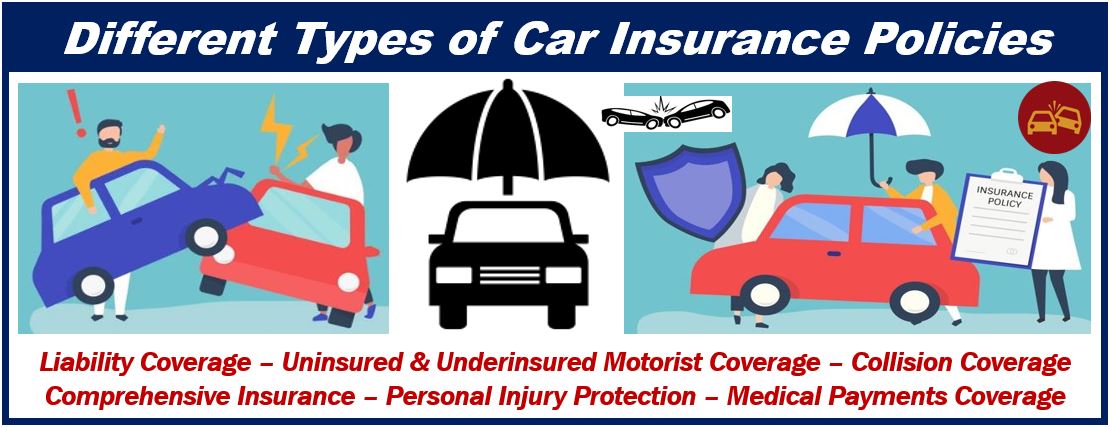
Car insurance is an essential component of owning and operating a vehicle. It provides financial protection in case of accidents, damages, or theft, giving drivers peace of mind while on the road. With the wide variety of car insurance options available, it can sometimes be overwhelming to navigate the path towards finding affordable and comprehensive coverage that suits your needs. However, by understanding key factors to consider and utilizing smart strategies, you can chart a course towards securing the right car insurance policy that not only fits your budget but also offers extensive protection. In this article, we will explore the ins and outs of car insurance, providing insights and tips to help you maneuver the road towards affordable and comprehensive coverage. So buckle up and let’s begin this journey together!
Understanding Car Insurance Coverage Options
Car insurance is a crucial aspect of owning and operating a vehicle. It provides protection and peace of mind in the event of accidents, theft, or any unexpected damage. With a wide range of coverage options available, it’s important to understand the different types of car insurance coverage to make informed decisions that best suit your needs.
Liability Insurance: Liability insurance is the most basic and mandatory type of car insurance. It covers the costs associated with injuries or property damage caused by you in an accident. This coverage is essential as it protects you from legal and financial liability.
Collision Coverage: Collision coverage is an optional type of insurance that helps pay for the damages to your own vehicle due to a collision, regardless of fault. Whether you collide into another vehicle, object, or overturn your vehicle, collision coverage ensures that your vehicle repairs are taken care of.
Comprehensive Coverage: Comprehensive coverage is another optional insurance that provides protection against non-collision incidents. This includes damages caused by theft, vandalism, natural disasters, falling objects, or hitting an animal. Comprehensive coverage ensures that you’re protected from various risks that are beyond your control.
Understanding the different car insurance coverage options is vital in determining the level of protection you need for your vehicle. Each type of coverage serves a specific purpose, and having the right combination of insurance ensures you have comprehensive protection on the road. Remember to consider your budget, personal circumstances, and any additional coverage options that may be beneficial for your peace of mind.
Factors Affecting Car Insurance Costs
When it comes to car insurance, several factors can influence the cost of coverage. Understanding these factors can help you navigate the road to affordable and comprehensive car insurance. Let’s explore some of the key elements that insurance providers consider when determining the cost of your car insurance.
First and foremost, your driving record plays a crucial role in determining your car insurance costs. Insurance companies assess your driving history to gauge the level of risk associated with insuring you. If you have a clean driving record with no accidents or traffic violations, you are likely to be considered a lower risk and may enjoy lower insurance premiums. On the other hand, if you have a history of accidents or violations, insurance providers may view you as a higher risk and charge higher premiums accordingly.
The make and model of your vehicle also impact your car insurance costs. Insurance companies take into account factors such as the car’s purchase price, repair costs, and overall safety rating. Generally, vehicles with high purchase prices or expensive repair costs tend to have higher insurance premiums. Additionally, vehicles with lower safety ratings may also lead to higher insurance costs, as they could potentially result in more severe injuries and higher medical expenses in the event of an accident.
Another significant factor that insurers consider is your age and driving experience. Younger and less experienced drivers often face higher insurance costs due to their perceived higher risk of being involved in accidents. As drivers gain more experience and reach older age brackets, insurance premiums may decrease.
In conclusion, several factors influence the cost of car insurance coverage. Your driving record, the make and model of your vehicle, as well as your age and driving experience, are all important considerations for insurance providers. By understanding these factors, you can take steps to potentially lower your insurance costs or find the most suitable coverage for your needs. Stay tuned for the next section, where we will discuss strategies for finding affordable car insurance coverage.
Tips for Finding Affordable Car Insurance
-
Compare Insurance Rates: It’s important to shop around and compare insurance rates from different providers. Each company may offer different prices for the same coverage, so be sure to obtain quotes from multiple insurers. You can do this by requesting quotes online or contacting insurance agents directly. By comparing rates, you can find the most affordable car insurance policy that suits your needs.
-
Consider Your Deductible: Your deductible is the amount you are responsible for paying out of pocket before your insurance coverage kicks in. Choosing a higher deductible can lower your premium, making your car insurance more affordable. However, keep in mind that you should choose a deductible that you can comfortably afford in case of an accident or damage to your vehicle.
-
Look for Discounts: Many insurance companies offer various discounts that can help reduce the cost of your car insurance. These discounts can be based on factors such as your driving record, age, occupation, or the safety features of your vehicle. Some insurers also provide discounts for bundling multiple insurance policies, such as combining your car insurance with your homeowner’s insurance. Be sure to inquire about available discounts to maximize your savings.
Remember that while finding affordable car insurance is important, it’s equally crucial to ensure you have comprehensive coverage that meets your needs. Strike a balance between affordability and the level of coverage you require when selecting your car insurance policy.